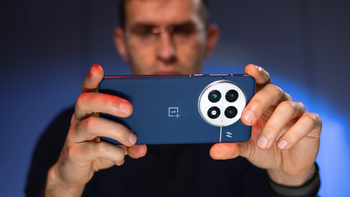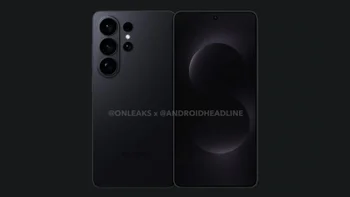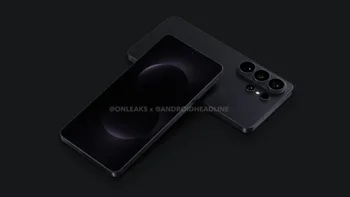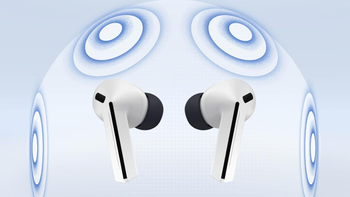New York Times says that RIM remains subject of takeover rumors

As we reported, Google's acquisition of Motorola Mobility for such a large premium over the latter's stock price the previous trading day has led investors to search for the next deal in the mobile handset industry. According to the New York Times, there is plenty of speculation that RIM will soon be gobbled up. Since the Motorola deal was announced, RIM has risen about 10%, but at a price near $26, is well off its 52 week high slightly above $70. It is this decline in price that has made a deal more palatable to possible suitors. But anyone buying the company has to understand that there are reasons for the drop in the stock.
RIM has been unable to compete with Apple and Android. And while the recently announced trio of new handsets, the BlackBerry Bold 9900/9930, BlackBerry Torch 9810 and BlackBerry Torch 9850/60 have specs that allow them to compete, they are still not playing on a level playing field. For example, the trio of new BlackBerry phones are powered by a single core 1.2GHz processor. While in some cases that represents a doubling of processor speed, many high-end Android models routinely ship with faster dual-core processors.
The new BlackBerry models all run on the new BlackBerry 7 OS that includes a browser that came close to rendering pages as quickly over Wi-Fi as an Android model or an Apple iPhone 4 on third party tests. Still, smartphone fanatics are waiting for a line of Superphones that RIM is expecting to launch early next year, powered by the same QNX OS that RIM is using to power its PlayBook tablet. That launch can't happen soon enough for 'Berry fans, some of whom see the latest releases as a place holder until the QNX models are ready.
A buyer of RIM will not only have to deal with sagging phone sales, but also sales of the new PlayBook tablet have been disappointing as well. In a rush to launch the device, the tablet did not come with an optimized email program, which might have put a dent in sales.
So who might be interested in buying RIM? According to the Times, if a current Android flavored handset manufacturer is upset and switches to Windows Phone 7, the answer would be nobody, But that isn't a strong probability which leaves Chinese handset makers ZTE or Huawei as possible buyers of RIM. Both have money to spend and both could be looking to get away from their image as makers of generic type handsets. Samsung and HTC are also mentioned in the article as possibly interested in RIM as a way to break out of their mold as mostly Android producers.
The last group that must approve of a deal is RIM's minority stockholders. Google paid a stunning 63% premium to Motorola's price the day before the deal was announced. If RIM were to get such a premium-and that is not likely considering the declining business and a patent portfolio that is limited in scope-the deal would be done at $42 which would be a far cry from the $70 52 week high. Some might not agree to that price considering how far away it is from the old high while others might complain that RIM was sold on the cheap. No matter what happens from here on out, the Google-Motorola Mobility deal has turned on the lightbulbs in the heads of Investment Bankers and Industry executives and RIM could be the subject of more and more rumors in the months ahead.
source: NYTimes
So who might be interested in buying RIM? According to the Times, if a current Android flavored handset manufacturer is upset and switches to Windows Phone 7, the answer would be nobody, But that isn't a strong probability which leaves Chinese handset makers ZTE or Huawei as possible buyers of RIM. Both have money to spend and both could be looking to get away from their image as makers of generic type handsets. Samsung and HTC are also mentioned in the article as possibly interested in RIM as a way to break out of their mold as mostly Android producers.
What makes the odds of a RIM takeover so prohibitive is the fact that the current CEO duo of Jim Balsillie and Mike Lazaridis are RIM's largest stockholders which means a deal would most likely have to meet with their approval not only as the top executives of the company, but also as shareholders looking to maximize their returns. And the Canadian government can block a takeover and has when it comes to assets that they feel are strategic to the country. This recently occurred when Canadian regulators blocked the acquisition of Potash by BHP Billiton.
The last group that must approve of a deal is RIM's minority stockholders. Google paid a stunning 63% premium to Motorola's price the day before the deal was announced. If RIM were to get such a premium-and that is not likely considering the declining business and a patent portfolio that is limited in scope-the deal would be done at $42 which would be a far cry from the $70 52 week high. Some might not agree to that price considering how far away it is from the old high while others might complain that RIM was sold on the cheap. No matter what happens from here on out, the Google-Motorola Mobility deal has turned on the lightbulbs in the heads of Investment Bankers and Industry executives and RIM could be the subject of more and more rumors in the months ahead.
source: NYTimes
Follow us on Google News














Things that are NOT allowed:
To help keep our community safe and free from spam, we apply temporary limits to newly created accounts: